Happy Birthday: The Resident Evil Franchise Has Turned 20
On March 22, 1996 Capcom released the grimy survival shooter Resident Evil on PlayStation.
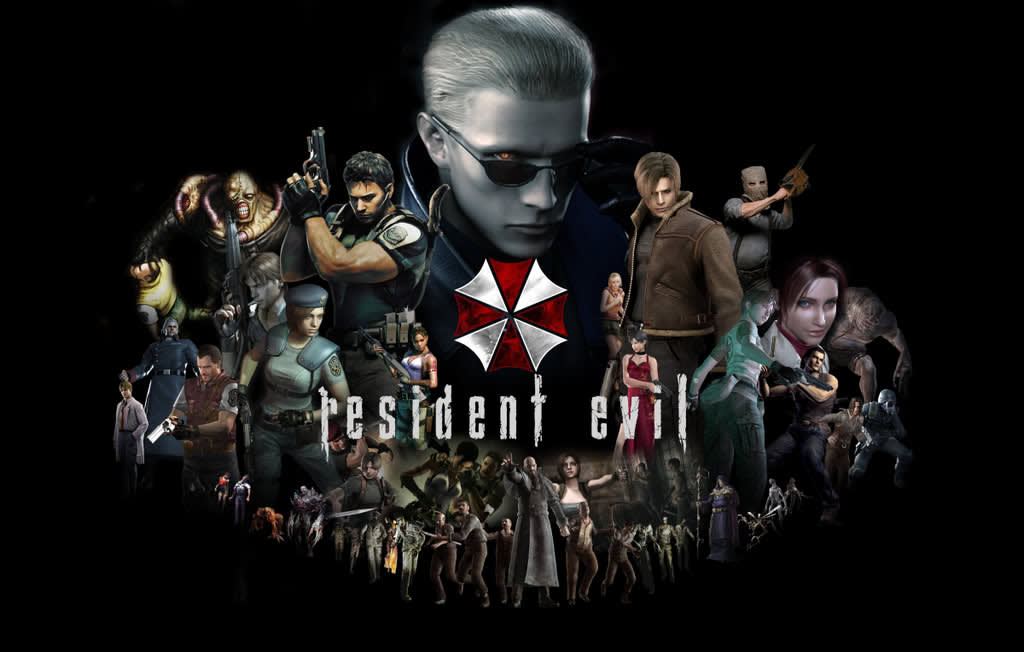
On March 22, 1996 Capcom released the grimy survival shooter Resident Evil on PlayStation. Little did we know that this would start our obsession with the zombie gaming genre and simultaneously shape the landscape of zombies across screen and disc for the next two decades.
Bloody Beginnings
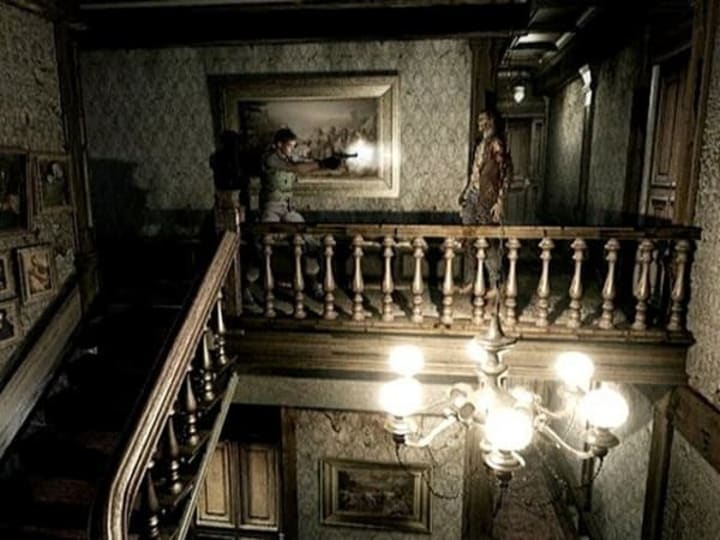
Resident Evil 1
In 1996, Capcom was struggling to shed its image as a 2D gaming company. Sure they had had successes with Street Fighter, but Capcom needed to prove it could compete with the likes of Nintendo - just months later Nintendo would release the 3D powerhouse Super Mario 64. Luckily for Capcom, there was a trick up their sleeve and it was Resident Evil (or Biohazard in Japan).
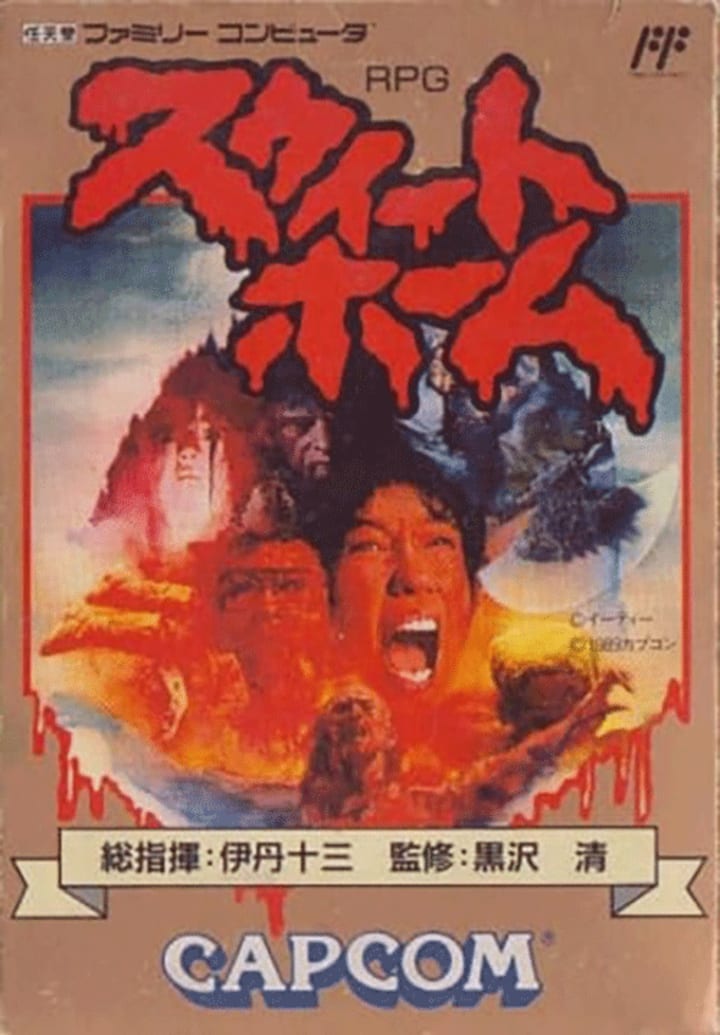
The cover for Sweet Home (1989)
Resident Evil was originally conceived as remake of Capcom's earlier horror survival game, Sweet Home - A 1999 release saw five intrepid explorers investigating a disappearance in an eerie mansion. It incorporated puzzle solving as well as a unique feature; as the game progressed and each of your characters died, they were unable to be revived. While not a remake of Sweet Home, RE borrowed several of the elements, including the idea of an expansive mansion and various endings depending on how many characters survived.
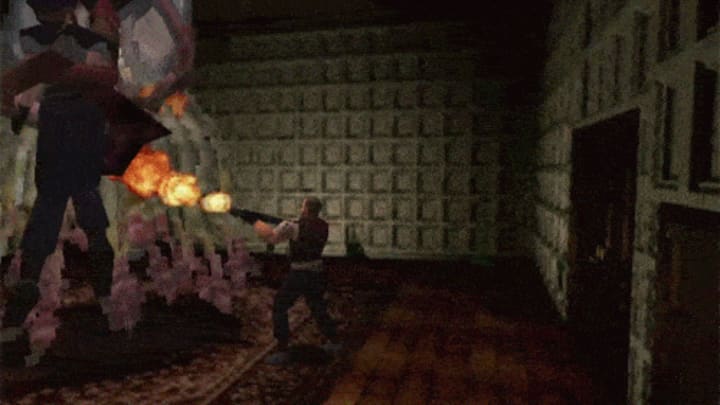
Video game designer Shinji Mikami eventually took on Resident Evil as its own project, pulling inspiration from the 1992 PC game, Alone in the Dark, as well as Stanley Kubrick's The Shining. Mikami is cited as using The Overlook hotel from The Shining as a role model for the scenery in the first Resident Evil. Artistically rendered backgrounds became a mainstay of the subsequent games too.
A Red Legacy
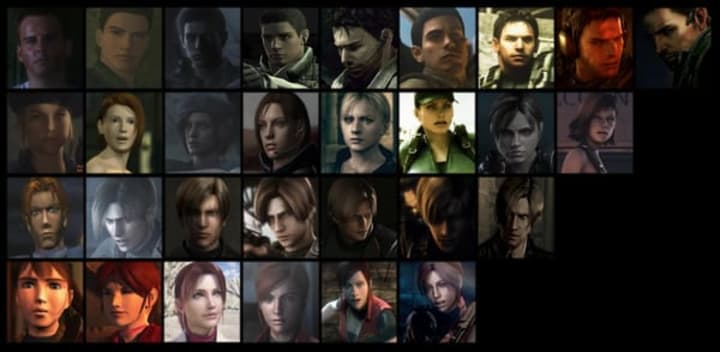
Character evolutions across the franchise
The original PlayStation game has been subsequently ported to several devices and even remade for the Gamecube in 2002. A never released Game Boy Advance version was planned for 1999, but was dropped due to the console's limited hardware. A Capcom representative told IGN in 2000:
"We were not confident that the product would have made both consumers and Capcom happy."
The commercial success of Resident Evil spawned two relatively quick succession sequels — Resident Evil 2 in 1998 and Resident Evil 3: Nemesis in 1999. The next game Resident Evil Code: Veronica was developed for the Sega Dreamcast in 2001 (and we all know how that console ended).
It was around this time that Resident Evil shot off in various different tangents, including the Gamecube remake and a prequel Resident Evil Zero. Mikami decided to make the series exclusively for Gamecube, which meant the next planned installment for the PlayStation 2 became a radical departure and its own entity — Devil May Cry. Although now in a different strand to Resident Evil, Devil May Cry was intended to be Capcom's follow-up. 2002 marked not only the heyday of the games, but the start of the films series. On March 15 2002 Resident Evil took a big leap into cinema.
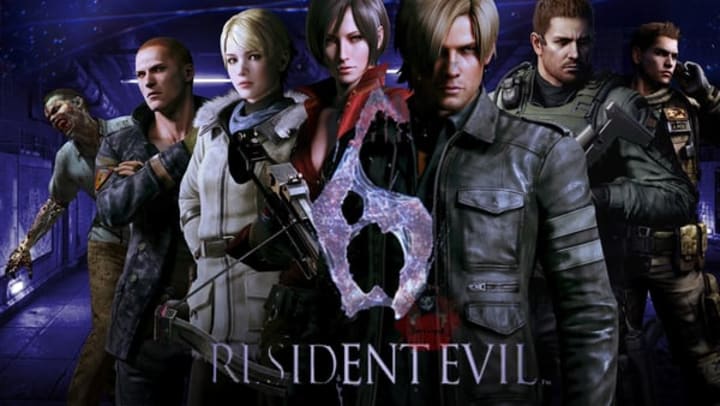
Back on consoles, 2005 saw a highlight of the series and must play for all Res-heads — Resident Evil 4 (more to follow). Hardcore gamers see it as the pinnacle and argue that Resident Evil should have been laid to rest here... yet the series continued to grow. 2007 saw the start of the Umbrella Chronicles, where several games took different characters for an on-rail shooter experience, but it wasn't until 2009 we got another numbered addition (Resident Evil 5). By the time Resident Evil 6 came round in 2012, support seemed to be waining. Despite enthusiastic pre-order sales, No. 6 was largely panned by critics:
"At times it very much embraces its old school heritage, pitting its heroes against horrific creatures in the darkest, filthiest locales imaginable...Yet it simultaneously attempts to be the largest, most action-packed entry in its history, betraying the aforementioned strengths" - Richard George IGN.
Since then we have been waiting for the announcement of Resident Evil 7 and continue to with baited breath. Many hope that the 20th anniversary may hold some sort of glimmer as so far there have been 21 Resident Evil games and a further two (Umbrella Corps and a Resident Evil 2 remake) in development. Pair this with the five films and a 6th - Resident Evil: The Final Chapter coming out next year, it is abundantly clear this franchise will keep rising from the dead for the foreseeable future. While some say we may never return to the golden age of the franchise's roots, the games never fail to bring in the money and the monsters.
Pause 4 Thought
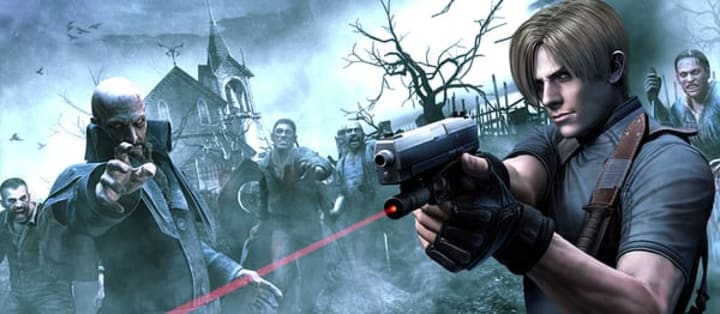
Resident Evi 4
The legacy of Resident Evil 4 isn't just that it was the most successful, it is what people say the template for Resi 7 should follow. From No. 4 onwards, the emphasis shifted away from the original stance and into a third-person shooter. There are less puzzles to solve and gameplay tends to revolve more around the gun battles and upgrading of weaponry. Clearly Capcom saw how successful this was in the fourth game and rolled it out. The form of over-the shoulder shooting was then popularized throughout gaming worldwide, making RE4 more than just a critically acclaimed game.
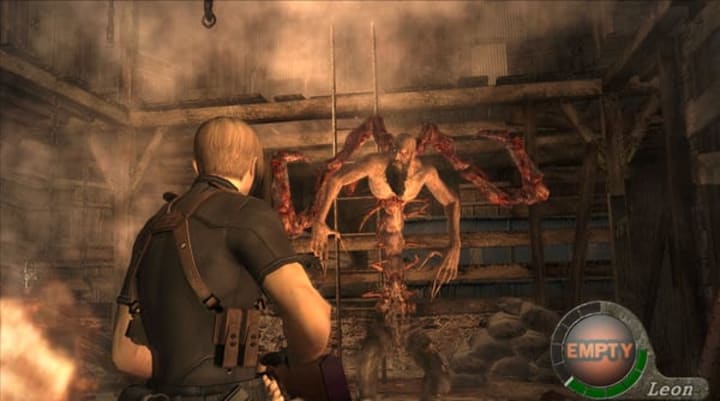
RE4 / Capcom
RE4 also brought the franchise back to other consoles, arguably helping the series continue to grow. The popularity of the game saw it released on PlayStation 2, then later Wii, PlayStation 3 and Xbox 360. Competent voice acting, a gripping storyline and innovative gameplay sees Resident Evil 4 as the Gamecube's No. 1 game of all time, as well as wiping the board with awards like Game of the Year and IGN's Best Game of all Time. Fortunately Resident Evil 4 was released in 2005, a point where the films were also (supposedly) at their finest.
The Silver Screen

Milla Jovovich as Alice
As for the movies? A mixed bag and often labelled as B-rated horror, they themselves have brought in $915 million worldwide and become the highest grossing film series to be based on games of all time. Given the often maligned Silent Hill films and the development hell of a Bioshock movie (seriously where is this?), it isn't hard to see why Resident Evil has done so well.
Back to the first game for inspiration; it is ironic that the first game featured Chris Redfield and Jill Valentine as the main protagonists, yet the RE film series moved the limelight to Milla Jovovich's Alice. Alice was the original creation of writer Paul W.S. Anderson, and despite her name never being mentioned in the first film, she became the figurehead of the series. One of the biggest criticisms of the films is the depiction of Chris and Jill (Wentworth Miller and Sienna Guillory), appearing sporadically throughout the series and often met with a mixed reception.
Two Decades of Gore

Resident Evil: The Final Chapter
The Final Chapter is set to be the last entry of the movie series, but whether this comes to pass, we will have to wait and see. Saw promised us a final chapter, yet is one of the most talked about 'reboots' you can read online.
With novels, animated spin-offs and even clothing, the Resident Evil universe continues to expand. Alongside the likes of Doom and Silent Hill, Resident Evil games are guaranteed to pull in the scares as much as they pull in the sales. The Resident Evil games have shifted an impressive 61 million units worldwide, so Happy Birthday Resident Evil. Grab yourself a nice slice of brain cake and whip out your old console to relive the horror of 1996.
About the Creator
Tom Chapman
Tom is a Manchester-based writer with square eyes and the love of a good pun. Raised on a diet of Jurassic Park, this ’90s boy has VHS flowing in his blood. No topic is too big for this freelancer by day, crime-fighting vigilante by night.


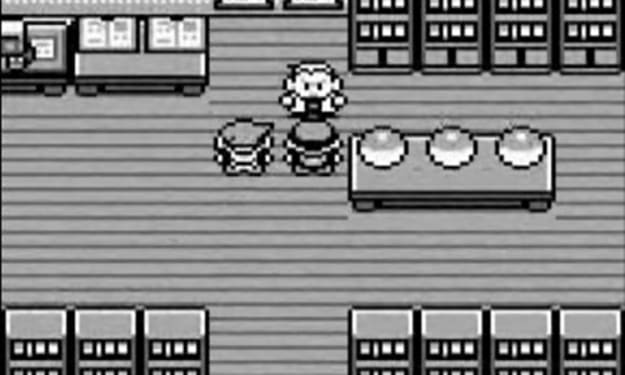
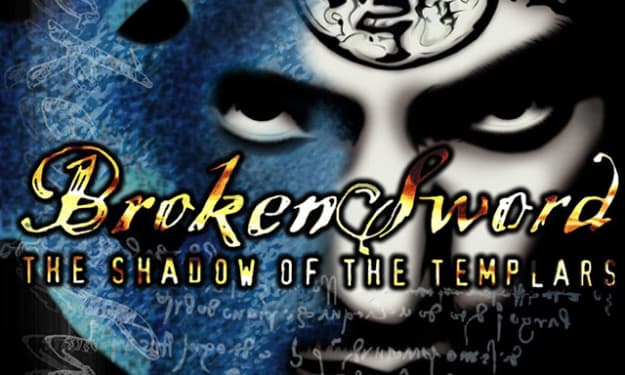


Comments
There are no comments for this story
Be the first to respond and start the conversation.